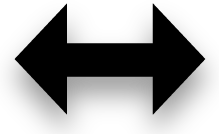Noor Abu Arafeh (Palestine) to produce a project dealing with two historical exhibitions of Palestinian art in Switzerland, from which the artworks never returned. It will investigate how these missing paintings, with the narratives and rumors they generate, become part of an alternative, imagined Palestinian art archive.
Rheim Alkadhi (Iraq) to produce a new work exploring hallucinations as disruption of ordinary perception, interrogating reality through assorted visual anomalies like night vision, color variance, ingestion of hallucinogens, and various two-dimensional illusions and optical tricks.
Asmaa Azaizeh (Palestine) to organize a writing and translation workshop gathering international and Arab poets in Catalonia, resulting in the publication of a poetry anthology that transcends geopolitical and linguistic borders.
Marianne Fahmy (Egypt) towards the research and production of her video installation What Things May Come a futuristic fictional narrative told by an oceanographer after the great flood of the delta.
Nancy Naous (Lebanon) to produce a dance performance exploring the social construction of the masculine body in patriarchal societies. Looking at rituals that glorify the male body, she questions the concept of masculinity by deconstructing these embodied social practices.
Lydia Ourahmane (Algeria) to produce a solo exhibition at the Chisenhale Gallery in London raising questions about the legacy of colonization, the origins of violence, and the residue of trauma by tracing converging narratives from her personal history and oral testimonies from residents in the north of Algeria.
Sara Sallam (Egypt/Netherlands) to produce a body of photographic work on the relationship between personal and collective mourning by probing historical, touristic, and archeological perceptions of death, the effects of 19th-century Egyptomania, and the ongoing immigration of pharaohs.
The selection committee of the above grantees included: Karim-Yassin Goessinger (founder of the Cairo Institute for Liberal Arts and Sciences, Egypt), Rosaline Elbay (actor, screenwriter, playwright, and theater critic, Egypt/US), Noura Al Khasawneh (co-founder of Spring Sessions and co-director of Mohammad and Mahera Abu Ghazaleh Foundation, Amman), and Andrea Thal (artistic director of the Contemporary Image Collective, Cairo). *Not all committee members participated in the full selection.
Adel Khaled (Iraq/Belgium) for the post-production of his new documentary Survivors of Firdous Square about the late Iraqi artist Bassem Hamad.
Khaled Kaddal (Egypt) and Nisrine Mansour (Lebanon) collaborate on Syada, an audiovisual publication and a performative lecture researching one hundred years of Arab nation-building through official sonic and visual symbols.
Bassam El Baroni (Egypt) for Averroës and Images (working title), an installation that considers the relevance of philosopher Averroës’s thoughts on secularism using Archivo F.X. — a vast collection of images and artefacts documenting key examples of iconoclasm in Spain.
Assem Hendawi (Egypt) for his photographic installation exploring the experience of army conscription through narratives based on factual and fictional stories.
marra.tein (Lebanon) for a research project around how/when/why to engage the “digital” in academic/artistic research. It brings together practitioners to consider digital methodologies not only as outputs but as a central part of the process that re-formats research directions.
The selection committee of the above grantees comprised: Doa Aly (Cairo-based visual artist), Amal Khalaf (associate curator of Serpentine Gallery’s Edgeware Road Project, London), Walid Sadek (Beirut-based artist and writer), and Rania Stephan (filmmaker and video artist living in Beirut).
